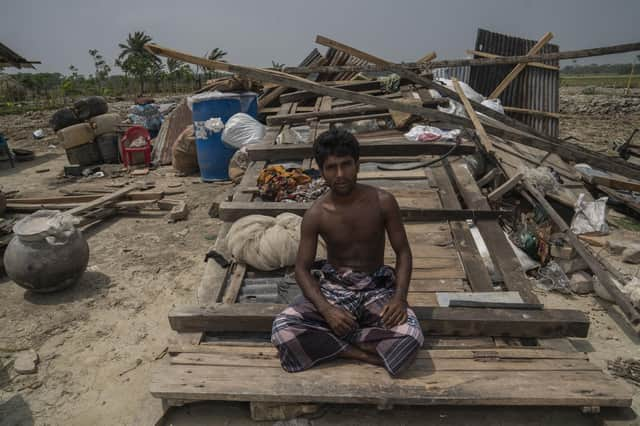Time to apply the 'polluter pays' principle on a global scale - Chris Hegarty


Yet when it comes to the massive scale of global human suffering and environmental costs being caused right now by climate change, polluters all too often remain unaccountable for the loss and damage being inflicted. Instead, the most vulnerable and marginalised communities not only face the brunt of the climate crisis but also shoulder the costs. This is unacceptable.
We're already feeling the heat today at 1.1 degrees centigrade of warming. Between 3.3 and 3.6 billion people currently live in areas that are highly vulnerable to the impacts of climate change. The build-up of greenhouse gases, emitted over decades, predominantly from richer countries, is already driving more intense extreme weather events from scorching heatwaves to devastating floods and triggering slow-onset events such as rising sea levels, displacing coastal communities.
Advertisement
Hide AdAdvertisement
Hide AdLow-income countries, and many of the communities with which Christian Aid works in Africa, Asia and Latin America, are experiencing widespread loss and damage despite having contributed little to the climate crisis. This is causing huge financial and human costs, with very real consequences for people’s lives.


The economic harm will be substantial. Christian Aid’s ‘Lost and Damaged’ Report found that the top ten worst-affected countries would see a climate-induced GDP hit of 70 per cent or more by 2100 at current climate emission pledges, and 40 per cent even if we stay within 1.5C of warming. Such losses would set back many recent improvements and gains; reinforcing inequalities across and within countries, and increasing the vulnerability of those living in poverty.
At recent UN climate talks in Bonn, the most vulnerable countries made impassioned calls to put the topic of Loss and Damage on the agenda, recognise the ‘polluter pays’ principle, and compensate climate-affected communities for the fallout from the crisis. Loss and Damage has to be at the heart of the COP27 climate summit in Egypt, the successor to Glasgow’s COP26.
Plenty of critics, in civil society and among governments in climate-vulnerable countries, believe that the big carbon-emitting countries are actively seeking to obstruct progress on Loss and Damage, for fear of signing an open cheque. Yet while governments haggle, those people who did the least to cause the climate crisis are trapped in a vicious cycle of poverty and debt.
And this is where progress from Scotland is already helping to play a part in breaking this unhelpful cycle of mistrust. At COP26 last November, Scotland became the first rich nation to pledge funds for Loss and Damage, a breakthrough moment widely welcomed by climate campaigners and described by some of my colleagues from Africa as ‘the high point of the summit’.
The sums pledged by the Scottish Government are small in comparison with the scale of the problem, and arguably the biggest impact of the funding can be had from learning from it, and from helping to break open global talks on this issue. In that respect, the Scottish Government’s commitment to host an international conference to share best practice and push for global action on Loss and Damage this autumn is important and welcome.
The prospects for progress on Loss and Damage at COP27 are concerning. And the progress so far is limited. But people campaigning on climate change issues all around Scotland should be heartened by these international ripples, and redouble efforts to keep up the pressure for justice.
Chris Hegarty, Senior Adviser, Christian Aid. Support Christian Aid’s campaign on Loss and Damage at here
Comments
Want to join the conversation? Please or to comment on this article.